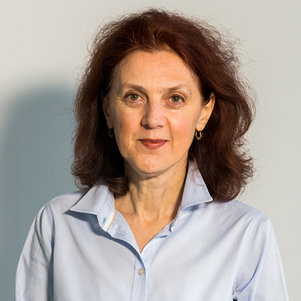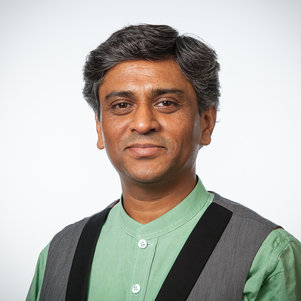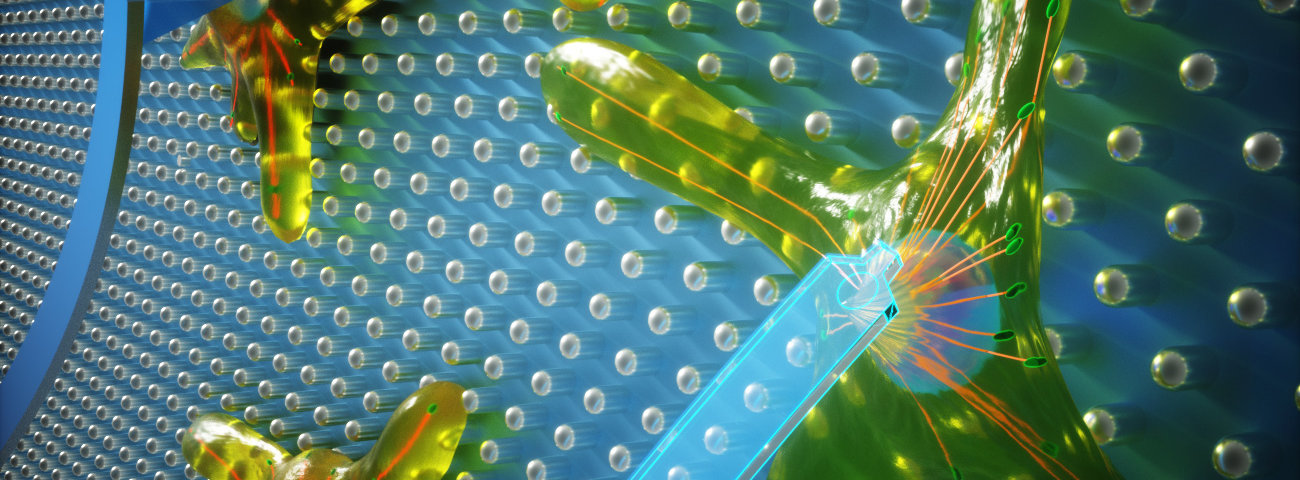New methods to investigate the interface between biomaterials and cells to help regenerate body tissues
“We are working on biomaterials that may help regenerate certain tissues for patients suffering from chronic diseases such as osteoarthritis and liver diseases,” says Fratila-Apachitei (BMechE).
Better bone implants
One of the approaches is to focus on the physical surface cues of the biomaterial to see how different surface topographies such as tiny pillars may instruct cells “to do what we want them to do” - in this case regenerate bone tissue. “The challenge is to create patterns on the surface that would support adhesion and differentiation of progenitor cells to become bone cells, but at the same time, discourage bacterial cells to grow, thereby preventing implant associated infections. So you structure the surface in such a way that bone cells like it but bacteria don’t – that was a very clever idea which fascinated me,“ says Ghatkesar.
Cohesion Project
Fratila-Apachitei and Ghatkesar (PME) applied and received a Cohesion grant to investigate how 3-D printed pillars with features in the sub-micrometre range can affect adhesion and mechanics of living progenitor cells at single cell level. Together with postdoc researcher Livia Angeloni and the other collaborators, they developed and applied a novel method based on fluid force microscopy.
Half a micrometre matters
“By using our method, we could reveal early potential biophysical markers (e.g. cell adhesion strength) for osteogenic differentiation and matrix mineralisation, and show that just a tiny difference in the height of the pillars of 0.5 micrometre is enough to change cell behaviour.” The method and the results obtained enable a more rational design of physical surface cues for orthopaedic biomaterials.Their results have been published in the journal Small and are featured on the inside front cover of this journal.

E.L. (Lidy) Fratila-Apachitei
- +31 15 27 89083
- E.L.Fratila-Apachitei@tudelft.nl
-
34.E-3-220

M. K. (Murali) Ghatkesar
- +31 15 27 82299
- M.K.Ghatkesar@tudelft.nl
-
34.G-1-400
